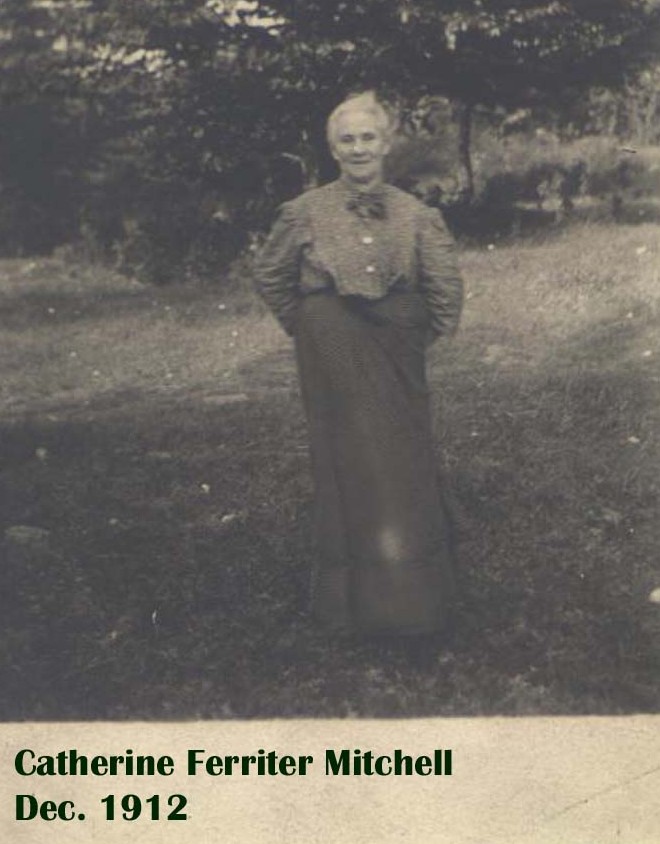< Blog Home Page
Bailiú Fiacha, 1307
Medieval life in Ireland was most often harsh, and frequently violent. The intrusion of the Normans and the follow-on attempts of the English monarchy to exert control within Ireland created extended periods of social, political and economic turmoil, and the constant friction between the Norman Lords and the Irish, as well as between the Norman Lords themselves led to a succession of minor wars that sputtered for centuries. English Law extended only to those of English birth, English Heritage (including the descendants of the Normans), and those few Irish who had been granted coverage by the crown. During the first 150 years following the initial... Read More
Ferriter Family Occupations on the Dingle During the 1700s
Creation of the new Ferriter Family website moved me to a review of certain items that I had in hand, for inclusion on the site. A number of these are now posted as blog entries, including the following. None of these observations, speculations, and theories have been altered by the time that has passed between having been written and now…enjoy reading, and comment, please! The lands that the Ferriters resided upon were not prime agricultural land. Those familiar with the place realize that aside from vegetable plots and grazing sheep, there’s not much to be had there, from the land itself. The Ferriter family... Read More
The Captain of the Whip: December 10, 1941, Cavite, P.I.
The following account is as written in my father's own hand after the action. His account is somewhat longer, and there are other parts of the larger story that may be posted on this blog later. I chose this date for this excerpt, as tomorrow marks the anniversary of the day upon which the events occurred. Most people know of the action recounted, which followed the attack on the base at Pearl Harbor by someting like 48 hours. Here is a piece of that history: The Captain of the Whip: December 10, 1941, Cavite, P.I. The commands: “General Quarters!”... Read More
The Treasure of the Fortune
During the year 1649, news of terrible new predations by the English spread across Munster. Cromwell himself had taken command of the New Model Army, and his “Ironsides” (as the men of that army were known) had proven invincible in combat against the poorly organized Irish. Yet in the far west – in Kerry – life seemed almost peaceful. However violent the reduction of Leinster may have been, Kerry remained at a distance and in relative peace. The Earl of Ormond presided as the King’s representative in Ireland at his seat in Kilkenny, with Murrogh O’Brien, Lord Inchquin in command of the Munster Army, and... Read More
Dominick
Why was Dominick Ferriter so important in the history of the Ferriter Family? In simplest terms, he was the first “modern” Ferriter. The evidentiary artifacts that are coming to light regarding the events of Dominick’s life bring to mind several ideas: one, that Dominick strived to conform in all matters save faith – which was not a problem during his lifetime in that Charles II and James II were at least “closet” Catholics themselves. Two, he strived to maintain his “Gentleman” status, probably to the detriment of the “cadet” line of his supposed half brother Maurice. These attitudes passed along to succeeding generations, led his... Read More
Know Your Ancestors
Catherine Ferriter
Catherine Ferriter was born in Boston, Massachusetts, in about 1840. She was the daughter of John and Honora (Fitzgerald) Ferriter. The family moved to Tioga County, Pennsylvania, soon after her birth, and she lived the rest of her life in that area. She married Edward Mitchell, originally from Dublin, Ireland, around 1856, and they lived in the Morris Run and Fallbrook, Pennsylvania, area. My mother's notes have her described as a redhead, with a great sense of humor. Edward and Catherine were the parents of at least eleven children, many of whom passed away fairly young. One of those children was my grandfather, Michael Mitchell.... Read More

